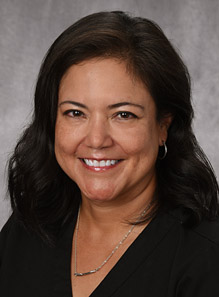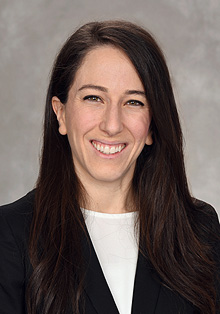741-750 of 1923 Results Found
Condition
For Parents: Signs That Your Child Is Being Bullied Bullying is very common. About 1 in 5 children and teens ages 12 to 18 report that they were bullied over the last 12 months. Bullying can cause kids to feel depressed or anxious. Kids who are bullied can see their grades drop
Service
The Neurofibromatosis Program at Phoenix Children’s provides comprehensive care and compassionate support. We understand that each patient's journey with NF is unique, which is why we take a holistic approach to care, bringing together a team of specialists to address every
Service
Tics and Tourette syndrome are neurological disorders characterized by sudden, repetitive, involuntary movements or sounds. Tics can range from simple motor actions, such as blinking or head jerking, to complex movements or vocalizations. Tourette syndrome, a more specific form
CME Session
PCH - Breaking the Script: Guiding Parents Through the No-Antibiotic Talk - Wendy Bernatavicius, MD and Brittany Miller
At the end of this presentation, participants should be able to: Introduce Antimicrobial Stewardship Concept & PCORI Project Review research on how parents communicate their expectations for antibiotics during pediatric visits for ARTI and how this can increase unwarranted
Service
The Fetal Cardiology Program at Phoenix Children’s is one of the largest and most comprehensive fetal cardiology programs in the Southwest. We are a nationally recognized leader in the diagnosis and management of complex fetal cardiovascular disorders housed within a top-ranked
CME Session
NSGR - Neuropsychological Functioning in Children - Aimee Hammer, PhD
Presenter: Aimee Hammer, PhD Neuropsychologist Barrow Neurological Institute at Phoenix Children’s Learning Objectives: Describe common types of craniosynostosis. Discuss the neurodevelopmental outcomes of syndromic and non-syndromic craniosynostosis in children. Describe

CME Session
PCH - Mental Health and Wellness in Pediatric Cardiology Patients - Dr. Jamie Jackson
At the end of this presentation, participants should be able to: Describe the health risks faced by individuals with congenital heart disease as they enter adulthood. Describe the goal of behavioral lifestyle interventions. Identify at least two risk factors for lower physical
CME Session
NSGR - Innovations in interventional psychiatry: Enhancing mental health through targeted - Dr. Narmada Neerja Bhimanadham
Learning Objectives: Recognize the developing field of interventional psychiatry, its indication, and its safe practice in psychiatry. Describe the benefits, risks, side effects, and contraindications of Electroconvulsive therapy. Describe the evidence-based practices for

